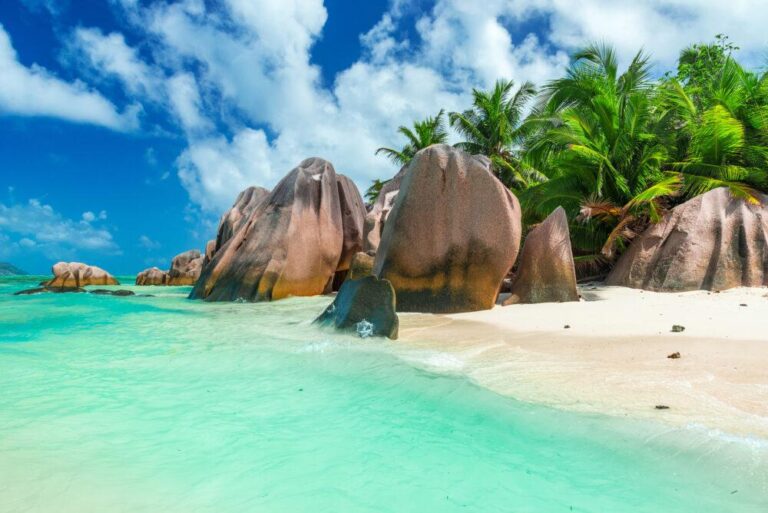Seychelles at a Crossroads: Charting a Sustainable Future Amid Global Pressures
In today’s interconnected world, Seychelles—a breathtaking archipelago in the Indian Ocean—is increasingly recognized not just for its scenic beauty but for the complex challenges it faces. As the nation approaches a pivotal general debate, urgent topics such as climate resilience, economic diversification, and social inclusivity dominate discussions. With fragile ecosystems threatened by rising seas and an economy deeply intertwined with tourism, Seychelles finds itself at a critical juncture. This article explores the diverse obstacles confronting this island nation while highlighting the hopes and concerns of its people committed to forging a sustainable and thriving future. The choices made here will influence Seychelles’ path forward and offer valuable insights for other small island developing states (SIDS) navigating similar trials.
Preserving Seychelles’ Extraordinary Ecosystems Amid Environmental Challenges
Spanning 115 islands scattered across the Indian Ocean, Seychelles is renowned for its unparalleled biodiversity found nowhere else on Earth. The islands shelter unique species such as the Aldabra giant tortoise and the iconic Coco de Mer palm—symbols of an irreplaceable natural legacy. Its vibrant coral reefs support rich marine life that draws scientists and eco-tourists alike. Among these treasures is Vallée de Mai Nature Reserve, designated by UNESCO as a World Heritage Site due to its ancient endemic flora.
Despite this ecological wealth, Seychelles confronts mounting environmental pressures intensified by human activity and climate change:
- Overexploitation of fish stocks threatening marine biodiversity essential for local food security
- Coastal urbanization encroaching on sensitive habitats vital to wildlife survival
- Introduction of invasive species disrupting native ecosystems’ delicate balance
- Rising sea temperatures causing widespread coral bleaching alongside more frequent severe storms linked to global warming trends
Conservation groups have responded with efforts aimed at expanding marine protected areas and rehabilitating damaged environments. However, safeguarding these precious ecosystems demands not only stricter enforcement of environmental laws but also greater community involvement through education initiatives designed to cultivate environmental stewardship among Seychellois citizens.
Balancing Economic Growth with Eco-Friendly Tourism Development
Tourism remains central to Seychelles’ economy yet presents intricate challenges in aligning expansion with sustainability objectives. Prior to COVID-19 disruptions, over 300,000 visitors annually were attracted by pristine beaches coupled with rich cultural heritage—making tourism both an economic pillar and potential source of ecological strain.
Emerging trends emphasize responsible travel models that reduce environmental footprints while fostering authentic cultural exchanges benefiting local communities directly. Community-led tourism ventures empower residents by integrating indigenous knowledge into visitor experiences—helping preserve traditions while generating livelihoods.
Key initiatives underway include:
- Encouraging Local Food Procurement: Hotels sourcing ingredients from nearby farms lower carbon emissions tied to transportation.
- Scaling Up Renewable Energy Adoption: Investments in solar panels and wind turbines across resorts aim to decrease reliance on fossil fuels.
- Supporting Artisan Craft Markets: Establishing platforms where Seychellois artisans can sell handmade goods promotes inclusive economic growth.
By embedding these strategies within national development frameworks—with backing from international organizations like UNWTO—Seychelles aims not only for post-pandemic recovery but also long-term conservation of its stunning landscapes and marine resources.
Enhancing Governance & Civic Participation for Equitable Progress
Looking ahead, strengthening governance structures alongside increasing citizen engagement is crucial for inclusive advancement in Seychelles. Transparent leadership builds public trust—a foundation of democratic vitality—and government officials are prioritizing open communication channels between authorities and communities.
Regular community forums provide spaces where residents express views on issues ranging from environmental protection measures to social welfare programs—ensuring policies reflect diverse perspectives grounded in lived experiences.
Digital innovations further facilitate civic involvement through:
- User-Friendly Reporting Platforms: Mobile apps enable inhabitants across remote islands easy access to report concerns or propose solutions.
< li >< strong >Youth Empowerment Initiatives: Educational workshops engage younger generations early in governance processes nurturing future leaders.
< li >< strong >Collaborations Between NGOs & Government: Joint projects expand outreach capacity enhancing grassroots mobilization efforts.
Program Description Expected Outcome Civic Opinion Surveys Pursuing regular polls capturing public sentiment about national priorities Data-driven policymaking aligned with citizen needs < td >Interactive Digital Engagement Tools < td >Development of websites & apps enabling two-way communication channels Broader inclusivity via accessible technology solutions < td >NGO-Government Partnership Programs Collaborative campaigns aimed at raising grassroots awareness & participation levels Enhanced societal cohesion & informed electorate involvement Implementing these measures will nurture participatory democracy where all Seychellois feel empowered contributors shaping their country’s future trajectory.
Final Thoughts: Building Resilience Amid Global Uncertainties Â
As conversations continue around securing Seychelles’ future amid escalating global threats—including recent IPCC reports projecting sea-level rises up to one meter by 2100—the imperative remains clear: harmonize ecological preservation with socio-economic progress equitably throughout society.
The ongoing collaboration among citizens, policymakers, conservationists—and international partners—is vital not only because it guides domestic policy but also because it positions Seychelles as a model among SIDS demonstrating innovative approaches balancing development within planetary limits.
Ultimately,the outcomes emerging from this decisive moment will determine whether this jewel of the Indian Ocean thrives sustainably or succumbs under intensifying external pressures—a story closely observed worldwide given shared vulnerabilities faced by many small island nations today.







